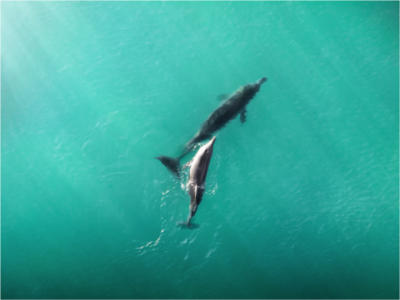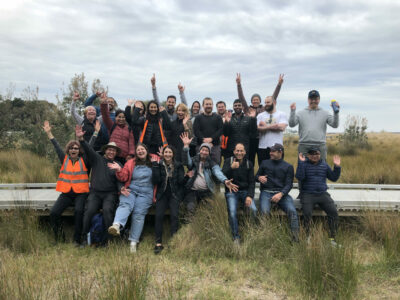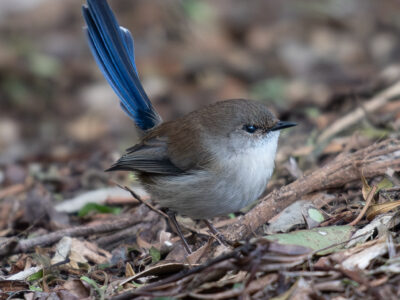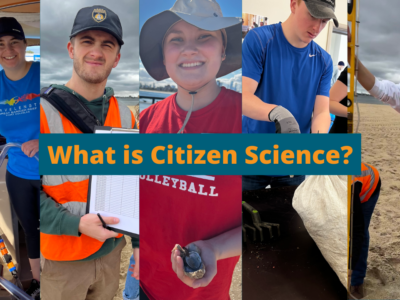This article is republished from Sustainable Port Phillip. Read the original article.
If you have children, you may be having (or avoiding) some tricky conversations around the climate crisis and unsure what to say that is appropriate for your child’s age without making them fearful.
City of Port Phillip recently with a panel of students and professionals to provide parents with insight, advice and strategies, after parents told us this was something they wanted help with.
The panel featured students aged 13, 15, 17 and 20, environmental psychologist Susie Burke, the Port Phillip EcoCentre’s Environmental Educator Sharron Hunter, Boon Wurrung Foundation CEO Gheran Steel, Early Childhood Educator Sally Plummer, and Albert Park Preschool Kindergarten Director Jenny Whelan.
Here is a summary of the advice from the panel of how parents can help:
1. Take action. Action is a great antidote for fear so decide on direct personal action your family can take that is realistic for your situation – aim high, but within reach. For example, ‘we will stop using single-use plastic bags, bottles and cups’ or ‘we will ride our bikes instead of using the car for trips under 3km’ or ‘we will volunteer once a fortnight for a local environmental group’.
2. Model sustainable behaviours at home and make them the ‘norm’. You are your child’s first and most important teacher. Young people learn so much from observing and copying.
3. Go regularly into nature with young people. This simple act helps them (and us) see the pure beauty in the world, it helps us connect to Country, and can help restore and maintain physical and mental health.
4. Look to Indigenous culture. From an Indigenous perspective, Bundjil (the Creator) taught the Boonwurrung to always welcome guests, but he required that the Boonwurrung ask all visitors to make two promises:
- to obey the laws of Bundjil;
- not to harm the children or the land of Bundjil.
Honouring sacred ground and connecting to Country is a powerful action for sustainability. Celebrating common purpose and finding people with similar values is a way to strengthen commitment to a sustainable future.
5. Give them the space and time to talk about their feelings. A student on the panel said their parent “lets” them be emotional about the issues and doesn’t say things like “oh it will be okay, don’t worry about it”. The parent makes space for a conversation about the issues and related emotions and this proves helpful and productive.
6. Critically reflect on information. If your child is watching or reading a lot of information about climate change, and particularly if they’re becoming fearful or anxious, ask if what they’re watching aligns with their core values and whether it encourages meaningful, positive action, and is helping or hindering them. And if they don’t know what their core values are, this is an opportunity for another great conversation.
7. Find appropriate information sources. If news programs, social media or conversations between adults is adding to your child’s anxiety, help them find alternatives. For example, Behind the News is a news program that is informative about local and global issues and it’s child-friendly. Be mindful of the conversations you’re having in front of your child and the effect it may have on them.
8. Look for ‘helpers’ or ‘heroes’. Encourage them to look for people providing leadership and solutions to the problems. This will help them see people who are doing something about it to help lift their perspective, provide hope and demonstrate tangible action. In the words of one of the students on the panel, “find a Greta to your Trump”.
9. Not everyone has to be an activist. Activism can feel empowering. But if joining protests is overwhelming for your child, do something more low-key on the day that is still relevant and action-focussed.
10. Have ‘grounded hope’. Hope is really important, but should be realistic too. Norweigan psychologist, Per Stoknes, highlights ‘active hope’ or ‘grounded hope’ – where you’re not sure if everything’s going to turn out ok but it’s the morally right thing to do to give it our best shot and do what we can to bring about the conditions for a better world. Grounded hope can help adults talk with their families about what they can do to live out their values at home and in the community and help bring about the change that’s needed.
11. Talk to your school or pre-school. Schools and pre-schools often have sustainability as part of their program or curriculum and communicating your family’s values about sustainability should be welcomed. Offering an hour of your time can add big value to your children’s and their educator’s learning about sustainability. For example, if you’re on a mission to stop using single-use plastics and your child’s artwork comes home covered in it, offer to run a craft session using natural or biodegradable materials. You have the ability to teach and empower others with this approach.
12. Keep conversations local. For young children (pre-school into primary school), trying to explain global warming, climate change, the waste crisis and other global environmental problems is likely to go over their head and potentially create or fuel anxiety. If they ask you a question about something in particular, keep your answers local, in context and positive, so they can understand and relate to what you’re saying.
13. Creating or reading stories helps young people grasp big concepts on a personal level. Here are some suggestions the Port Phillip EcoCentre uses to accompany their environmental education programs:
- Welcome to Country – Aunty Joy Murphy and Lisa Kennedy
- Wilam, A Birrarung Story – Aunty Joy Murphy and Andrew Kelly
- Young Dark Emu, A Truer History – Bruce Pascoe
- The Tantrum that Saved the World – Megan Herbert and Michael E. Mann
- Bundjil, Creation Story – Carolyn Briggs
- Walk with Me….. images from the trail – Trace Balla
- I Only Drain Rain – Helen Skondras
- Alfreda the City Penguin – Meyer Eidelson
- The Girl Who Saved the Frogs – Kelly Mrocki
- Circle – Jeannie Baker



